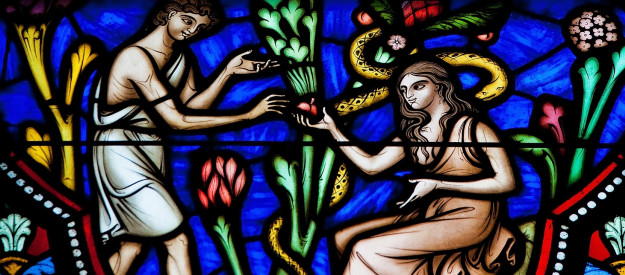"We are losing our attitude of wonder, of contemplation, of listening to creation and thus we no longer manage to interpret within it what Benedict XVI calls 'the rhythm of the love-story between God and man.'"
+ Pope Francis
War, Genesis, and October Devotions

Today, with the reading of the opening of the Book of Genesis—from creation to the story of Noah—the Jewish people observe Parashat Beishit, which begins the annual reading of the Torah. Last week, the day of the gruesome attacks on the Israeli people by Hamas, was Simkhat Torah (Rejoicing in the Law), which was the end of the previous cycle—a day traditionally celebrated with family and friends.
Meanwhile, throughout October, Catholics are gathering across the world, often weekly, to pray the Rosary. This October Devotion often includes Eucharistic adoration and the recitation of the Litany of the Blessed Virgin Mary.
Both traditions are not only comforting. They also offer lessons and reminders about our fallen world—a world still reeling from images and stories of Hamas’s brutality against infants, children, the elderly, the infirm, and now a world at war, with all the carnage that goes with it.
The backdrop of all this, of course, is a host of ecological crises, from climate change to deforestation, which can easily be overlooked in such times.
But what connects and informs both the wars of the world and our environmental ills are the texts that Jews across the world are reading today—the opening of the Book of Genesis. For Christians, what Genesis has to say also includes a promise that comes to fruition with the Blessed Virgin Mary.
Indeed, almost everything we need to know about life, faith, and a fallen world can be learned in the first three chapters of this first book of scripture.
1. God’s creation is good, orderly, and the product of love.
As I’ve written elsewhere, we can appreciate Genesis all the more in light of neighboring, extant creation myths, such as the Babylonian Enuma Elish. Those neighboring creation myths presupposed the existence of evil in the divine realm, which implies that evil is a normative construct for the created order itself. But for Genesis, divinity is revealed as all-powerful and innately good, and thus so is the creation that comes into being in the book’s first two chapters. The lesson, then, is that for Jews and Christians, creation is fundamentally good and that this goodness is the core of not just our natural environment, but also human relationships. Especially, our relationships with God, with nature, and with each other.
2. Evil is the result of human free will.
It is not until the fateful third chapter that evil itself slithers before humanity, then lies and connives and twists the words of God, and tricks Adam and Eve into consuming fruit from the Tree of Knowledge of Good and Evil.
Now, the consequence of their choice should be self-evident. Adam and Eve already knew goodness. They were made as the pinnacle of creation in God’s divine image—a God of love and relationship itself. What our biblical parents did not know was evil. But in consuming from the Tree of Knowledge of Good and Evil, they soon do—which means they experience evil, and this experience resonates throughout human history. In part, of course, this evil is the source of all the suffering, death, lies, and self-centeredness that has led to so many broken relationships—both interpersonal and international.
3. God promises salvation.
In response to the choice made by Adam and Eve, God spells out the consequences of knowing evil: inequality, suffering during childbirth, the harsh reality of survival, and more. But he also reveals a prophecy. In speaking to the serpent, God says,
I will put enmity between you and the woman,
and between your offspring and hers;
They will strike at your head,
while you strike at their heel (Genesis 3:15)
For Christians, this is a foretelling of the choice that Mary will make—a selfless choice aligned with God’s will—to partner with divinity, which allows divinity to enter human history in the person of Jesus Christ.
From the earliest days of the Church, devotion to the Blessed Virgin Mary has been a strong source of comfort and peace, and it is for this reason that we come together each October and each May to thank her for her choice, and to place our troubles before her, so that she can then offer them to her son—and as anyone knows who has read John 2’s wedding at Cana, when Mary asks her son for help on someone else’s behalf, her son listens.
The takeaway for us today is that the evil of hate, war, environmental destruction, and so much more, are all rooted in our common reality of our fallen humanity.
The solution comes in our faith. In particular, for Christians it comes with that promise made by God in Genesis 3: Evil may win battles, but thanks to the choice of the Blessed Mother, God will save us from our poor choices. After all, He did make us in the beginning for something far better than we are able to create for ourselves.
Mary, Mother of God, pray for us! Pray for Peace!


















